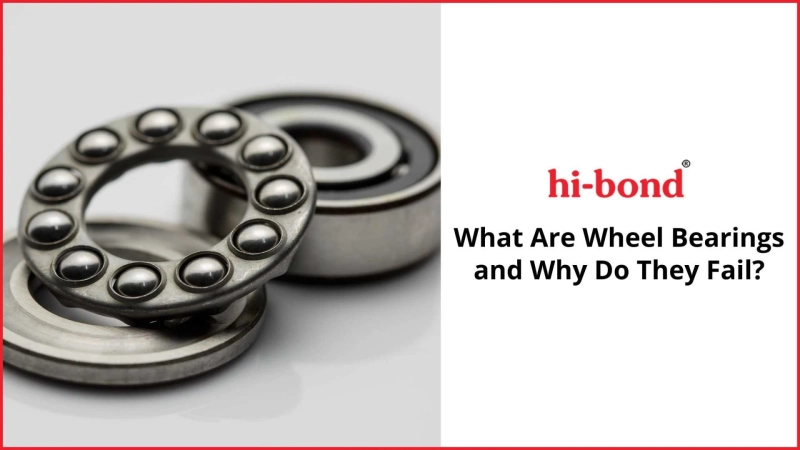Have you ever heard a loud grinding noise when your car was turning? Or maybe your steering wheel has been feeling a bit wobbly lately? Chances are, your wheel bearings are to blame.
Wheel bearings are a main part of your vehicle\'s suspension. They enable the wheels to rotate freely and provide support for the car\'s weight. They work tirelessly to keep your car moving, but sometimes they can fail. This can cause all sorts of problems for your vehicle.
In this article, we\'ll look at what wheel bearings are, why they fail, and the risk factors for failure.
What Are Wheel Bearings?
A wheel bearing is an important part that assembles the wheels of your vehicle. It is a set of steel balls or tapers held together by a metal ring called races. The bearings enable free movement of the wheel and help support the weight of the vehicle.
Wheel bearings are designed to sustain radial and axial loads caused by the weight of the car and the friction created by the rotation of the wheels. When they stop working properly, the car\'s weight is no longer evenly distributed, which causes increased wear on other parts of the suspension. Therefore, you need to replace them as soon as possible to avoid damage to your car.
How Long Do Wheel Bearings Last?
Under normal driving conditions, wheel bearings should last for the life of your car. They have an average lifespan of 150,000 miles. The thumb rule is to check them regularly and replace them if they show signs of wear. The lifespan depends on the quality of the bearings, driving habits, and the conditions of the roads.
Why Do Wheel Bearings Fail?
Faulty Installation
Inappropriate installation is one of the main reasons for premature bearing failure. Tools such as a hammer or an impact wrench can damage the interior or exterior of the bearing during installation. It will cause the bearing to fail. Also, reusing old accessories such as bolts, nuts, split pins, and seals can cause damage. It increases the risk of the bearing coming loose and eventually failing.
Bearing manufacturing companies usually provide an installation manual with the product. Following their instructions carefully during installation can help avoid this issue.
Uneven Roads
The quality of the roads has an impact on the wheel bearings. Uneven roads with potholes, speed bumps, and other obstacles can cause damage to the bearings. Over time, the steel balls will become damaged, and the races will become worn, restricting the ability of the bearings to rotate freely.
At this point, it is requisite to take your car to an expert to get the bearings replaced. Bearing and bushing damage is not always visible to the naked eye. Hence, it\'s essential to have a professional inspect them regularly.
Quality
Wheel bearing quality makes a huge difference in terms of lifespan. High-quality bearings are designed to withstand more wear and tear than lower-quality bearings. They are also less likely to fail prematurely. Low-quality steel often has poor heat treatment that can spall and wear prematurely.
Driving Conditions
The way you drive also has an impact on the wheel bearing longevity. Sudden braking, hard acceleration, and high speeds can all stress the bearings. Frequent driving through mud, water, and sand can also cause premature bearing failure. These conditions can cause the bearings to become clogged with dirt and debris, which can damage the races and cause the bearings to fail.
Car Modifications
Making changes to the suspension or wheels of your car can also affect the wheel bearings. For example, fitting bigger or wider rims, tires with a lower profile, or stiffer suspension can increase the stress on the bearings. Stick to the rims, tires, and suspension that the manufacturer specifies to avoid this issue.
What Is the Indication of a Failing Wheel Bearing?
Noise
One of the most common signs of a failing wheel bearing is noise. When you hear a grinding, roaring, or humming noise that increases with speed or a loud constant noise that can be heard even when driving on a smooth road, it indicates a failing wheel bearing.
Vibration
If you feel a sudden shaking or vibration in the steering wheel or seat, it can indicate a failing wheel bearing. The vibration is usually more pronounced at higher speeds.
Excessive Play
Moving the steering wheel from side to side with little effort could signify that the wheel bearing is wearing out. This is known as excessive play.
ABS Light
In some cases, a failing wheel bearing can trigger the ABS light. The ABS uses sensors to track the speed of the wheels. If a wheel bearing is failing, it can cause the sensor to malfunction, which will trigger the ABS light.
Read more about the signs of a bad wheel bearing in detail.
What Are the Consequences of Driving With Bad Wheel Bearings?
It\'s unusual for wheel bearings to fail immediately once you detect the first indication(s). Therefore, it is best to avoid driving your car with bad wheel bearings. We all know that wheel bearing is essential for a vehicle. It helps to support the car\'s weight and provides smooth rotation of the wheels.
If you continue to drive with bad wheel bearings, severe consequences for your drive-axle assembly can occur. The most common issue is the destruction of the wheel bearings and related components. This will cause expensive repairs that could have been avoided if the problem had been fixed early.
Conclusion
Now it\'s up to you to keep an eye out for the signs of a failing wheel bearing and take action if you notice any problems. Ignoring the problem will only lead to more expensive repairs down the road. Wheel bearings are a superior part of your car, so it\'s important to take care of them. Bearing and bushes suppliers can help you get high-quality bearings designed to last. So, buy the bearings from a reputable supplier to avoid any issues.
0


